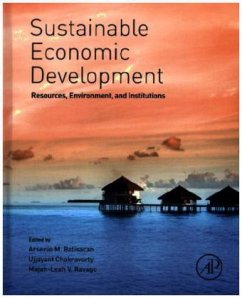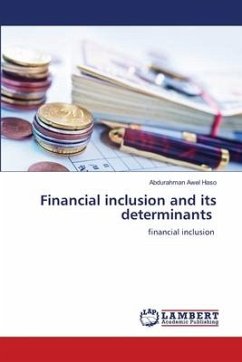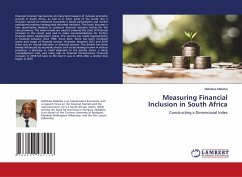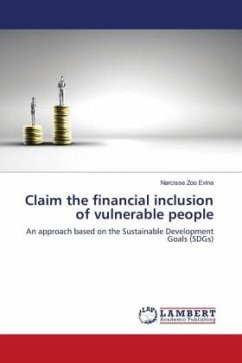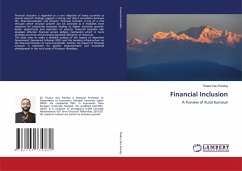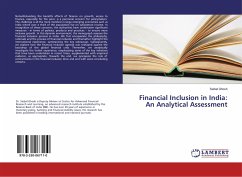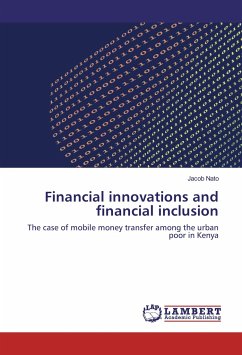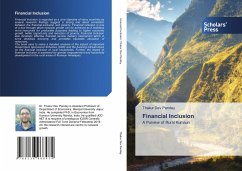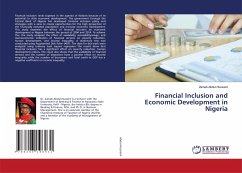
Financial Inclusion and Economic Development in Nigeria
Versandkostenfrei!
Versandfertig in 6-10 Tagen
47,99 €
inkl. MwSt.

PAYBACK Punkte
24 °P sammeln!
Financial inclusion ranks topmost in the agenda of Nations because of its potential to drive economic development. The government through the Central Bank of Nigeria has developed financial inclusion policy and strategies with a view to create opportunities for the high proportion of the financially excluded population and increase economic development. This study examines the effect of financial inclusion on economic development in Nigeria between the period of 2004 and 2014. To achieve this, the study analyzed the effect of availability, accessibility/usage, and macroeconomic indicators of f...
Financial inclusion ranks topmost in the agenda of Nations because of its potential to drive economic development. The government through the Central Bank of Nigeria has developed financial inclusion policy and strategies with a view to create opportunities for the high proportion of the financially excluded population and increase economic development. This study examines the effect of financial inclusion on economic development in Nigeria between the period of 2004 and 2014. To achieve this, the study analyzed the effect of availability, accessibility/usage, and macroeconomic indicators of financial services on poverty reduction, human development, and income inequality. A stationary test was conducted using Augmented Dick Fuller (ADF). The data for this work were analyzed using ordinary least square regression. The results show that financial inclusion has a significant effect on poverty reduction, human development indices. The result also shows that the availability of financial services and the number of depositors have a positive effect on income inequality while the number of borrowers and Total credit to GDP has a negative coefficient on income inequality.



